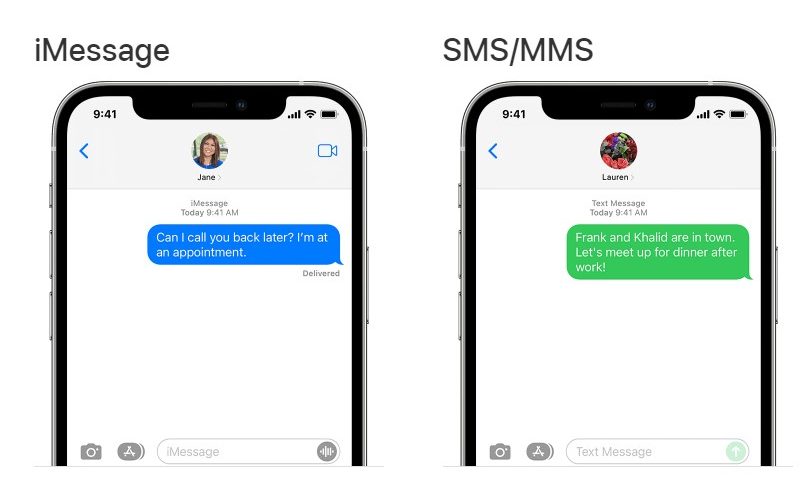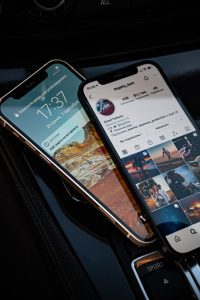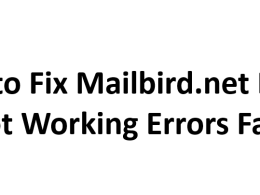Next-Level Connectivity: Apple iPhones Embrace RCS, Redefining Android Messaging
Introduction
Hi, I’m Alex, a tech enthusiast and a freelance writer. I love exploring the latest trends and innovations in the mobile industry, and sharing my insights with you. Today, I want to talk about a big announcement that Apple made recently, and how it will impact the way we communicate with each other across different platforms.
Apple said Monday it would support rich communication services (RCS) on iPhones with an update next year to improve messaging with non-iPhone users. RCS is an advanced messaging protocol designed to vastly improve upon default SMS functionality. The initiative began in 2007 as a way to offer a much wider range of features than the older standards.
At its most basic level, RCS extends character limits and improves image quality. It also enables features like encryption, read receipts, suggested replies, group chats, and commerce workflows. Customers are likely already using the majority of these interactive features across other platforms like WhatsApp and Facebook Messenger.
The adoption of RCS by Apple is expected to enhance the texting experience between iPhone and Android devices, enabling features like encryption, read receipts, and the sharing of high-resolution images and videos. It will also make it easier for communication app developers to create cross-platform solutions that work seamlessly with RCS.
In this article, I will explain what RCS is, how it works, and why it matters to you as a smartphone user, a tech trend follower, or a communication app developer. I will also compare RCS with other popular messaging apps, and highlight the benefits and challenges of RCS adoption by Apple.
What is RCS and How Does It Work?
RCS, or Rich Communication Services, is a set of communication standards for SMS, MMS, and calling that make text messages look and feel more like dedicated messaging apps like WhatsApp, Telegram, or Facebook Messenger. Basically, it aims to bring “texting” up to the modern standards with features we expect from messaging apps.
RCS is not a new app or a new service. It is a protocol that works on top of your existing phone service and uses your phone number as your identity. It is also not exclusive to any carrier or device. It is a universal standard that is supported by the GSM Association, a trade body that represents the interests of mobile operators worldwide.
RCS works by sending data over the internet, rather than the cellular network, when possible. This means that you can use RCS over Wi-Fi or mobile data, and enjoy higher quality and faster delivery of your messages. It also means that you can send and receive messages from any device that supports RCS, regardless of the carrier or the operating system.
RCS is not a single feature, but a collection of features that can be implemented by different carriers and device manufacturers. Some of the common features of RCS include:
- Typing indicators: You can see when someone is typing a reply to your message.
- Read receipts: You can see when someone has read your message.
- High-quality media: You can send and receive photos, videos, audio messages, and files in high resolution and without compression.
- Group chats: You can create and manage group conversations with up to 100 participants, and use @mentions, reactions, and stickers.
- Chatbots: You can interact with businesses and services through chatbots that offer customer support, booking, payment, and other functions.
- Location sharing: You can share your live or static location with your contacts.
- Video calling: You can make and receive video calls with your contacts, either one-on-one or in groups.
- Encryption: You can have end-to-end encryption for your messages, meaning that only you and the recipient can read them, and no one else, not even the carrier or the device manufacturer, can access them.
Why Does RCS Matter to You?
RCS matters to you because it will change the way you communicate with your friends, family, and businesses, especially if you use different platforms and devices. Here are some of the benefits and challenges of RCS adoption by Apple for different types of users.
General Smartphone Users
If you are a general smartphone user, RCS will make your texting experience more enjoyable and convenient. You will be able to use the same app, the same phone number, and the same interface to send and receive rich and interactive messages with anyone who has RCS enabled on their device, whether they use an iPhone or an Android phone.
You will no longer have to worry about the quality of your photos and videos, the length of your messages, or the availability of your contacts. You will also be able to access more features and services from your messaging app, such as booking a ride, ordering food, or paying a bill, without having to switch to another app.
However, RCS also comes with some challenges and limitations that you should be aware of. For example:
- RCS is not available everywhere. Not all carriers and countries support RCS, and not all devices have RCS enabled by default. You may need to check with your carrier or device manufacturer to see if you can use RCS, and how to activate it on your device.
- RCS is not compatible with all messaging apps. RCS only works with the default messaging app on your device, which is Messages by Google for most Android phones, and Messages by Apple for iPhones. If you use a third-party messaging app, such as Signal, Telegram, or WhatsApp, you will not be able to use RCS features with your contacts who use those apps.
- RCS is not fully secure. RCS offers some level of encryption for your messages, but it is not as strong or as consistent as other messaging apps that use end-to-end encryption, such as Signal, Telegram, or WhatsApp. RCS encryption depends on the carrier and the device, and it may not work in some scenarios, such as when you send a message to a non-RCS user, or when you use a different device to access your messages. You should be careful about what you send and who you send it to, and use a more secure app if you need more privacy and security.
Tech Trend Followers
If you are a tech trend follower, RCS will give you a glimpse into the future of communication, and how it will evolve with new technologies and innovations. You will be able to witness how RCS integrates with other platforms and services, such as Google Assistant, Google Pay, Google Photos, and Google Maps, and how it leverages artificial intelligence, machine learning, and cloud computing to offer more features and functions.
You will also be able to compare and contrast RCS with other messaging apps, and see how they compete and cooperate with each other. You will be able to observe how RCS influences the behavior and preferences of users, and how it impacts the market and the industry.
However, RCS also poses some challenges and questions that you should be curious about. For example:
- How will RCS affect the popularity and adoption of other messaging apps, such as Signal, Telegram, or WhatsApp? Will RCS make them obsolete, or will they coexist and complement each other?
- How will RCS affect the balance of power and control between the carriers, the device manufacturers, and the users? Who will have more say and influence over the standards, the features, and the data of RCS?
- How will RCS cope with the changing needs and expectations of users, and the emerging trends and technologies in the communication space? How will RCS adapt and innovate to stay relevant and competitive?
Communication App Developers
If you are a communication app developer, RCS will offer you new opportunities and challenges to create and improve your products and services. You will be able to leverage RCS as a platform and a protocol to build and integrate your own features and functions, and to reach and engage more users and customers.
You will also be able to learn from RCS and its best practices, and to collaborate and cooperate with other developers and stakeholders in the RCS ecosystem. You will be able to access and use the RCS APIs, SDKs, and tools to develop and test your apps, and to publish and distribute them through the RCS channels.
However, RCS also presents some difficulties and risks that you should be prepared for. For example:
- RCS is not easy to implement and maintain. RCS is a complex and evolving protocol that requires a lot of technical knowledge and expertise, and a lot of coordination and cooperation with the carriers, the device manufacturers, and the users. You may face some challenges and issues with the compatibility, the performance, and the security of your apps, and you may need to update and troubleshoot them frequently.
- RCS is not free to use and monetize. RCS is a carrier-based service that may incur some costs and fees for you and your users, depending on the carrier and the country. You may also have to comply with some rules and regulations, and share some revenue and data with the carriers and other parties involved in the RCS ecosystem. You should be aware of the business and legal aspects of RCS, and how they affect your profitability and sustainability.
How Does RCS Compare with Other Messaging Apps?
RCS is not the only messaging app that offers rich and interactive features. There are many other messaging apps that have been around for longer and have more users and popularity, such as Signal, Telegram, WhatsApp, Facebook Messenger, and iMessage. How does RCS compare with them, and what are the pros and cons of each app?
Here is a table that summarizes some of the main features and differences of RCS and other messaging apps:













